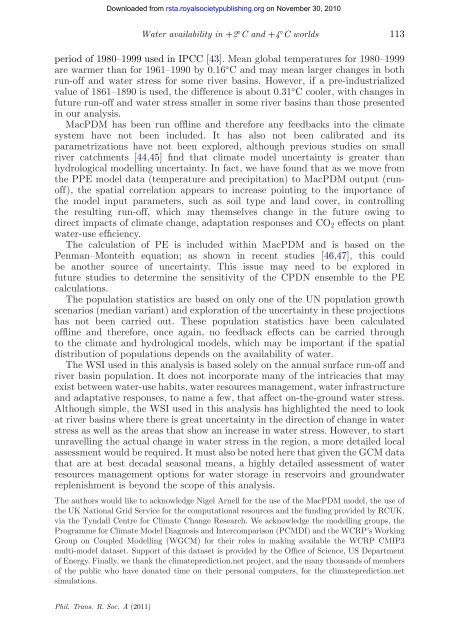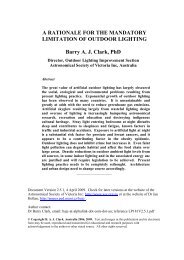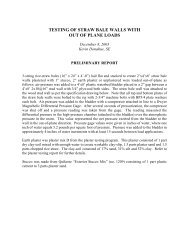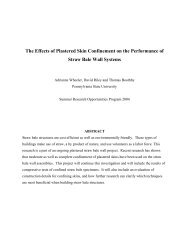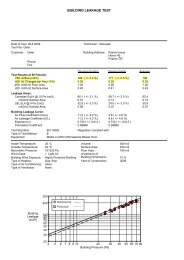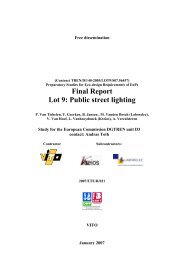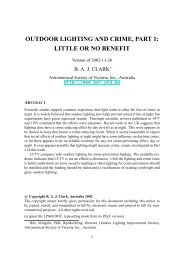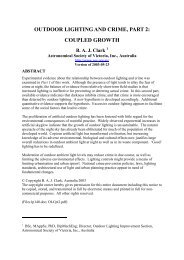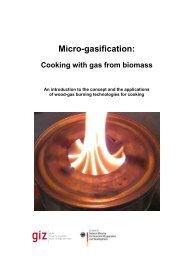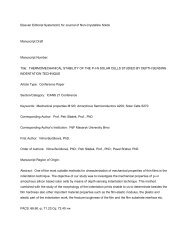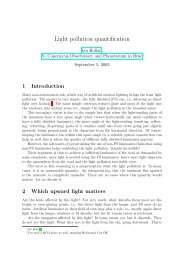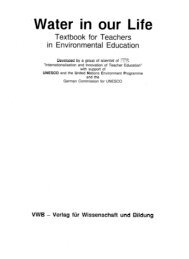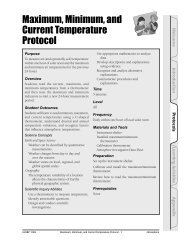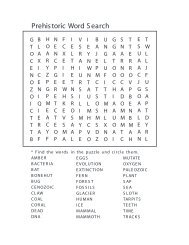Four degrees and beyond: the potential for a global ... - Amper
Four degrees and beyond: the potential for a global ... - Amper
Four degrees and beyond: the potential for a global ... - Amper
You also want an ePaper? Increase the reach of your titles
YUMPU automatically turns print PDFs into web optimized ePapers that Google loves.
Water availability in +2 ◦ C <strong>and</strong> +4 ◦ C worlds 113<br />
period of 1980–1999 used in IPCC [43]. Mean <strong>global</strong> temperatures <strong>for</strong> 1980–1999<br />
are warmer than <strong>for</strong> 1961–1990 by 0.16 ◦ C <strong>and</strong> may mean larger changes in both<br />
run-off <strong>and</strong> water stress <strong>for</strong> some river basins. However, if a pre-industrialized<br />
value of 1861–1890 is used, <strong>the</strong> difference is about 0.31 ◦ C cooler, with changes in<br />
future run-off <strong>and</strong> water stress smaller in some river basins than those presented<br />
in our analysis.<br />
MacPDM has been run offline <strong>and</strong> <strong>the</strong>re<strong>for</strong>e any feedbacks into <strong>the</strong> climate<br />
system have not been included. It has also not been calibrated <strong>and</strong> its<br />
parametrizations have not been explored, although previous studies on small<br />
river catchments [44,45] find that climate model uncertainty is greater than<br />
hydrological modelling uncertainty. In fact, we have found that as we move from<br />
<strong>the</strong> PPE model data (temperature <strong>and</strong> precipitation) to MacPDM output (runoff),<br />
<strong>the</strong> spatial correlation appears to increase pointing to <strong>the</strong> importance of<br />
<strong>the</strong> model input parameters, such as soil type <strong>and</strong> l<strong>and</strong> cover, in controlling<br />
<strong>the</strong> resulting run-off, which may <strong>the</strong>mselves change in <strong>the</strong> future owing to<br />
direct impacts of climate change, adaptation responses <strong>and</strong> CO2 effects on plant<br />
water-use efficiency.<br />
The calculation of PE is included within MacPDM <strong>and</strong> is based on <strong>the</strong><br />
Penman–Monteith equation; as shown in recent studies [46,47], this could<br />
be ano<strong>the</strong>r source of uncertainty. This issue may need to be explored in<br />
future studies to determine <strong>the</strong> sensitivity of <strong>the</strong> CPDN ensemble to <strong>the</strong> PE<br />
calculations.<br />
The population statistics are based on only one of <strong>the</strong> UN population growth<br />
scenarios (median variant) <strong>and</strong> exploration of <strong>the</strong> uncertainty in <strong>the</strong>se projections<br />
has not been carried out. These population statistics have been calculated<br />
offline <strong>and</strong> <strong>the</strong>re<strong>for</strong>e, once again, no feedback effects can be carried through<br />
to <strong>the</strong> climate <strong>and</strong> hydrological models, which may be important if <strong>the</strong> spatial<br />
distribution of populations depends on <strong>the</strong> availability of water.<br />
The WSI used in this analysis is based solely on <strong>the</strong> annual surface run-off <strong>and</strong><br />
river basin population. It does not incorporate many of <strong>the</strong> intricacies that may<br />
exist between water-use habits, water resources management, water infrastructure<br />
<strong>and</strong> adaptative responses, to name a few, that affect on-<strong>the</strong>-ground water stress.<br />
Although simple, <strong>the</strong> WSI used in this analysis has highlighted <strong>the</strong> need to look<br />
at river basins where <strong>the</strong>re is great uncertainty in <strong>the</strong> direction of change in water<br />
stress as well as <strong>the</strong> areas that show an increase in water stress. However, to start<br />
unravelling <strong>the</strong> actual change in water stress in <strong>the</strong> region, a more detailed local<br />
assessment would be required. It must also be noted here that given <strong>the</strong> GCM data<br />
that are at best decadal seasonal means, a highly detailed assessment of water<br />
resources management options <strong>for</strong> water storage in reservoirs <strong>and</strong> groundwater<br />
replenishment is <strong>beyond</strong> <strong>the</strong> scope of this analysis.<br />
The authors would like to acknowledge Nigel Arnell <strong>for</strong> <strong>the</strong> use of <strong>the</strong> MacPDM model, <strong>the</strong> use of<br />
<strong>the</strong> UK National Grid Service <strong>for</strong> <strong>the</strong> computational resources <strong>and</strong> <strong>the</strong> funding provided by RCUK,<br />
via <strong>the</strong> Tyndall Centre <strong>for</strong> Climate Change Research. We acknowledge <strong>the</strong> modelling groups, <strong>the</strong><br />
Programme <strong>for</strong> Climate Model Diagnosis <strong>and</strong> Intercomparison (PCMDI) <strong>and</strong> <strong>the</strong> WCRP’s Working<br />
Group on Coupled Modelling (WGCM) <strong>for</strong> <strong>the</strong>ir roles in making available <strong>the</strong> WCRP CMIP3<br />
multi-model dataset. Support of this dataset is provided by <strong>the</strong> Office of Science, US Department<br />
of Energy. Finally, we thank <strong>the</strong> climateprediction.net project, <strong>and</strong> <strong>the</strong> many thous<strong>and</strong>s of members<br />
of <strong>the</strong> public who have donated time on <strong>the</strong>ir personal computers, <strong>for</strong> <strong>the</strong> climateprediction.net<br />
simulations.<br />
Phil. Trans. R. Soc. A (2011)<br />
Downloaded from<br />
rsta.royalsocietypublishing.org on November 30, 2010


